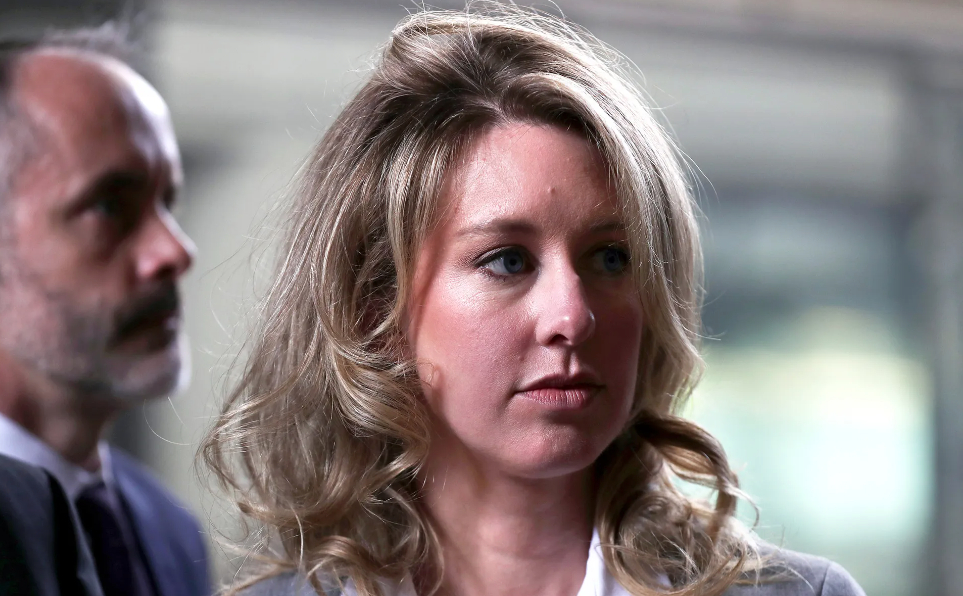The former Theranos CEO’s fall is a cautionary tale for eccentric founders and the investors who blindly throw money at their inventions.
ELIZABETH HOLMES HAS been sentenced to just over 11 years in prison for defrauding investors by falsely claiming her technology could detect diseases from a drop of blood.
The sentencing of the former Theranos CEO marks the end of the young founder’s Silicon Valley saga—one in which she wooed investors with empty promises and idealism and raked in hundreds of millions of dollars. And it’s a case that could have an impact on how investors evaluate new startups, experts say. Many founders have used hyperbole to describe their visions and raise money, but criminal charges of fraud are rare.
“She pushed the envelope a little too far,” says Anat Alon-Beck, a law professor at Case Western Reserve University. “You fake it ’til you make it, but it was too much ‘fake.’”
But the case isn’t entirely over. Holmes’ former boyfriend and business partner, Ramesh “Sunny” Balwani, has a sentencing scheduled for December 7. He was convicted on 12 felony counts of fraud and conspiracy against Theranos investors and patients. Holmes has also accused him of abusing her, but Balwani has denied these allegations.
Holmes sought funding for Theranos, which she dropped out of Stanford University to launch, by claiming her technology would revolutionize the medical world, as it could use just a few drops of blood to scan for hundreds of diseases. She turned the startup into a $9 billion unicorn. But whistleblowers revealed Holmes had lied about the capabilities of her invention. Instead of saving lives, it had been putting patients at serious risk of fake results.
Holmes faced up to 20 years in prison for her actions. In a memo that depicted Holmes as a compassionate child who grew into a naive, young business leader, her attorneys requested she serve 18 months of house arrest followed by supervised release and community service. Prosecutors sought a 15-year prison sentence and $8 million in restitution.
“I stand before you taking responsibility for Theranos. I loved Theranos. It was my life’s work," Holmes said before receiving the sentence of 135 months, or 11.25 years. "I regret my failings with every cell of my body."
In October, Holmes again tried to avoid prison by seeking a new trial. (After her conviction earlier this year, she has filed several such motions.) The latest motion came after former Theranos lab director Adam Rosendorff, a witness who testified against Holmes, came to her home attempting to apologize for the role he played in her conviction. That led Holmes to argue against the use of his testimony against her, but a judge rejected the motion in early November.
In June 2018, Holmes had been charged with 11 counts of fraud and convicted of four: one for conspiracy and three for wire fraud. A jury did not convict her of charges related to defrauding patients by subjecting them to faulty blood tests, which gave them false positives for HIV, miscarriage, and cancer. Theranos had made a deal with Walgreens, which included plans to put Theranos blood-testing centers in thousands of its stores across the US. But Walgreens had not done a full, independent validation of the tech, and instead gambled on Theranos.
Alon-Beck says the Holmes case will have a chilling effect on new startups seeking venture capital. Startups are facing a market downturn and layoffs in a tech industry that overhired, but Holmes’ case matters, too. It shows the importance of corporate governance and monitoring investments, Alon-Beck says.
Sanjeev Agrawal, president and chief operating officer of health tech company LeanTaaS, believes Holmes’ case will have a direct impact on fundraising, but it’s not the only factor. “It’s hard to separate that impact from the fact that the market is tanking,” he says. But, he adds, the scrutiny on companies, and questions of whether they’re delivering real value and have real customers, has gone up.
As a startup, Theranos evaded the government and public scrutiny that larger companies must undergo. Investors who jumped in as the company was in its ascendancy got early benefits, but that also made them responsible for doing independent vetting—a step many of them skipped, swayed by the excitement of Holmes’ promises. But with so many boom and bust cycles, along with the fear of missing out on a fast-moving market, investors don’t always see through the hype. “Investors should be doing much deeper due diligence,” Agrawal says. “There’s so much money in the system that it’s easy to throw money at shiny objects that look good.”




Recommended Comments
There are no comments to display.
Join the conversation
You can post now and register later. If you have an account, sign in now to post with your account.
Note: Your post will require moderator approval before it will be visible.